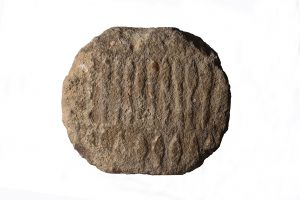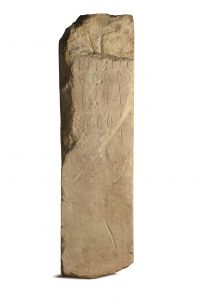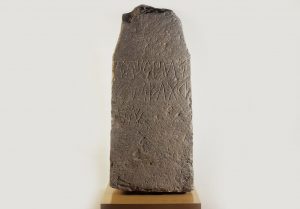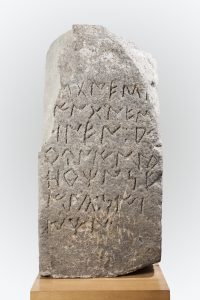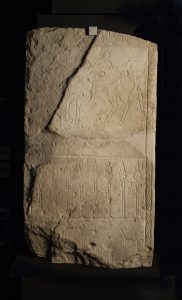- Object type
- stele
- Production date
- -200 / -50
- Fabric -
- Museum
- Museu d'Arqueologia de Catalunya - Barcelona
- Culture
- Protohistory and Iberian world
- Discovery location
- Sant Antoni de Calaceit
- Materials
- sandstone
- Township
- Calaceit (Europa, Espanya, Aragó, Terol)
- Technique
- carving
- Where is it?
- Exposició permanent
- Dimensions
- 1700 x 400 x 200 mm


